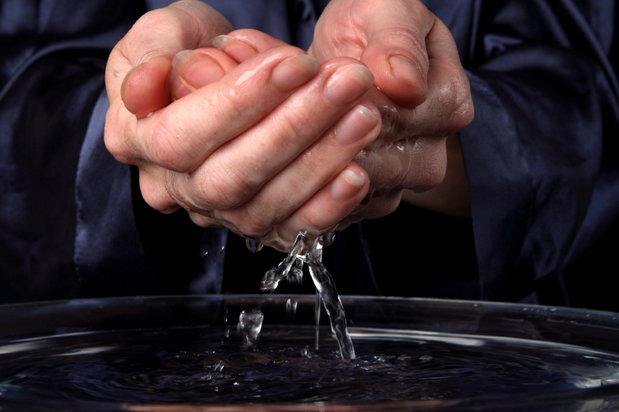Managing OCD is difficult but doable. You don’t have to be a helpless victim of your never-ending thoughts or obsessions. Nor do you have to keep performing tasks (compulsions) over and over to rid yourself of the thoughts and the catastrophes you associate with them. Here are some easy ways to help you identify OCD and five ways you can manage it so it doesn’t manage you.
Common Signs and Symptoms of OCD
- You fear being contaminated with germs so you wash your hands, bathe or clean your spaces repeatedly and excessively.
- You’re afraid of being robbed or of setting off a fire, so you repeatedly check that the stove is turned off, the iron is unplugged, the car is locked, or the doors of your home are secured.
- You fear bad luck or losing something of value if you throw away anything, so you hoard many unnecessary items including newspapers.
Complex Signs and Symptoms of OCD
Some obsessive thoughts may invoke fears of violence, bad luck, or punishment from God. You may have persistent thoughts of doing harm to a family member or a total stranger, for example, or you may have recurrent sexual thoughts, even while praying. So you resort to performing any of the following rituals, over and over, just to get some peace.
- Constantly checking that you’ve put away harmful objects such as knives
- Opening and closing a door repeatedly before entering a room
- Continually adjusting items until they are exactly right
- Excessively counting your motions, such as your footsteps to the car, and needing to end with the same number each time, or the same foot
- Folding clothes in a particular way and arranging them according to color
- Touching an item twice. If you touch it with the one hand, then you must do so with the other
- Uttering words, phrases or prayers repeatedly
Results of OCD Rituals
You create further problems for yourself with these rituals. If you’re an obsessive hand-washer, you could end up with raw, bruised hands. If you’re a hoarder, your home could become so cluttered it’s impossible to live in. If you fear harming a family member, you’ll steer clear of that person. You may be aware of all these problems but can do nothing about them. And, you may rationalize your behavior. If you’re repeatedly checking the front door, you may think, “better safe than sorry.” Wouldn't you rather be free of the limits these rituals place on you?
5 Self-Help Tips for Overcoming OCD
Professional help is available for OCD, but you also need to be proactive in managing your own illness. Here are some tips to help you cope at home.
1. Cut Back or Delay Your Rituals
If you normally check 15 times at night that the front door is locked, cut this to 10 checks, then five, then two, then one. Do everything deliberately so you remember the action. If you touch a supposedly contaminated doorknob, put off washing your hands for five minutes, then 10, then 15. It will be difficult at first but with practice, the compulsions start to lessen as you realize you can cope with anxiety without performing compulsive rituals. You will also start to see that the catastrophe you associate with them is not happening.
2. Refocus Your Attention
When your obsessive thoughts come knocking, ignore them for a while, and involve yourself in other tasks like reading a few chapters of a book, watching a movie, or exercising. Delay your response for up to 30 minutes. You’re not suppressing your urge; you’re just delaying your response to lessen the impact of the urge. The longer you delay and focus on other ordinary activities, the less your OCD will disturb you.
3. Accept Your Thoughts
Don't delay your intrusive thoughts forever. You must accept them to overcome them. Deep breathing and mindfulness will help you with this. For 30 minutes a day, settle down in a quiet place and breathe deeply, expanding your abdomen far outwards as you inhale and contracting it far inwards as you exhale. Feel your blood pressure and heart rate drop and feel yourself getting calmer and better able to control your urges.
As you breathe deeply, let your thoughts and worries pass through your mind. Don't suppress them. This is called mindfulness. It enables you to become less fearful of your thoughts and to look at them more objectively. You start to spot those that are unrealistic and unlikely to result in a catastrophe if you refrain from them.
4. Avoid Substance Addiction
Coping with OCD is difficult enough. Don’t complicate it by using drugs and alcohol as a coping mechanism. You get only temporary relief and may end up with even higher levels of OCD. Substance compulsion won’t help you face your fears—a crucial step in dealing with OCD.
5. Have a Viable Support System
Recovering from OCD is even more difficult when you’re isolated. Just talking about your fears and compulsions can make then seem less intimidating. Stay connected to family and friends and join a support group to draw strength from others facing similar problems. This way you can better avoid setbacks.
OCD is a manageable disease so long as you become the central player in your own recovery. And, each time you make progress in overcoming your OCD, give yourself a pat on the back, and a reward. This will encourage you to continue your recovery process.
If you or someone you know is seeking professional help, please visit our directory of mental health resources or call 800-772-8219 to speak to a treatment specialist.








